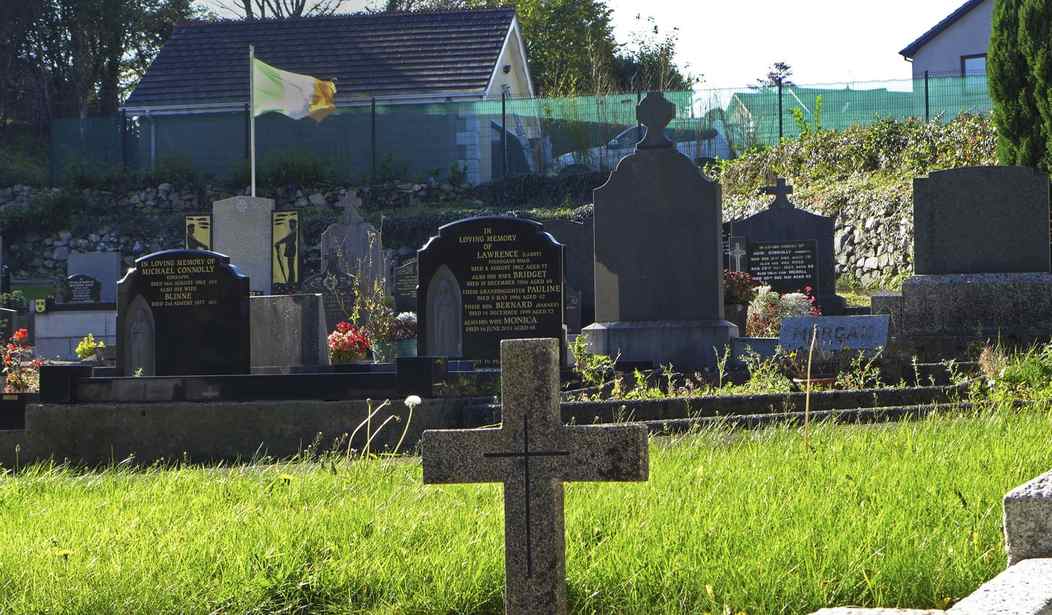Friday is International Women's Day. There are only two shopping days left! Of course, given the number of men who identify as women these days, the celebrations this year will likely be record-breakers. Maybe someone will hand out swag bags with beard balm.
As women and wannabe women around the world celebrate and appropriate, people in Ireland will head to the polls to vote on changes to the country's constitution. The first proposed amendment will redefine the word "family." The second will scrub women and mothers from the constitution.
According to an article by Theo McDonald in the New York Post, the Irish Constitution currently defines family as being "founded on marriage." Amendment 39 would add the words "or durable relationships." Backers claim that the phrase "founded on marriage" is discriminatory to single-parent homes and unmarried couples. Some politicians even fear that the change could open the door to polygamy.
With days left before the vote, no one seems to be able to come up with a definition of "durable relationships." Another concern is that loosening the definition could result in chain migration in a country already coping with a massive influx of immigrants. Not only could migrants be brought over as parts of "durable relationships," but the change could allow people who are in "unorthodox marriages" to enter the country as well.
Amendment 40 deals with the role of women and mothers in Irish society. At issue is Article 41.2 which reads in part, “...the State [recognizes] that by her life within the home, woman gives to the State a support without which the common good cannot be achieved... The State shall... [endeavor] to ensure that mothers shall not be obliged by economic necessity to engage in [labor] to the neglect of their duties in the home.” Activists want the article removed because it is sexist and "imprisons women in the home."
McDonald points out that Article 41.2 was designed to amend a tax code that discriminated against mothers and protects them if they feel they must take a part-time job to make ends meet. McDonald notes that over 90% of stay-at-home parents in Ireland are women and cites a poll in which a majority of women in the country said they prefer to stay at home during their child's "formative years."
It does not take much reading between the lines to realize that these are thinly veiled attacks on traditional families and women who prefer to be stay-at-home moms. Because it is not enough for progressives to live how they please, everyone else must live how progressives please.
McDonald closes with this:
Ireland has already had two female presidents and the female labor participation rate is almost 60%.
But while Ireland seeks to legislate for so-called misinformation under a draconian hate-speech bill, several politicians including the prime minister have repeated the “women in the home” mistruth.
This isn’t the first time the Irish government has sought to remove the word “woman.”
Back in 2020, Ireland’s government-run Health Service Executive caused controversy by replacing “woman” in its booklet on cervical-check information with “people with a cervix.”
The referendum will simply continue the trend of discarding women in the name of progressivism.
Ireland's free-fall is nowhere near done. At the Free Press, Rupa Subramanya talks about a proposed Irish law that would criminalize "inciting hatred" against people or groups of "protected characteristics." This includes a statement or post that could encourage people to hate or cause harm. It does not matter if the person is being ironic, hyperbolic, or comedic. The statement or post is the issue, not the intent.
Even if someone has the content and did not post it, he or she could still be liable for a fine of €5,000 or $5,422 and/or 12 months in prison. This would be on par with Canada's proposed law, which Subramanya reports could place a person under house arrest if the authorities think that he or she might create a hate crime. A person can also find himself in prison for five years to life for advocating genocide. You can read the report from the CBC here.
But what is hate speech? What kind of material constitutes advocacy of genocide? Moreover, who sets the criteria? I think people in Ireland, Canada, and the U.S. know the answers to those questions.










